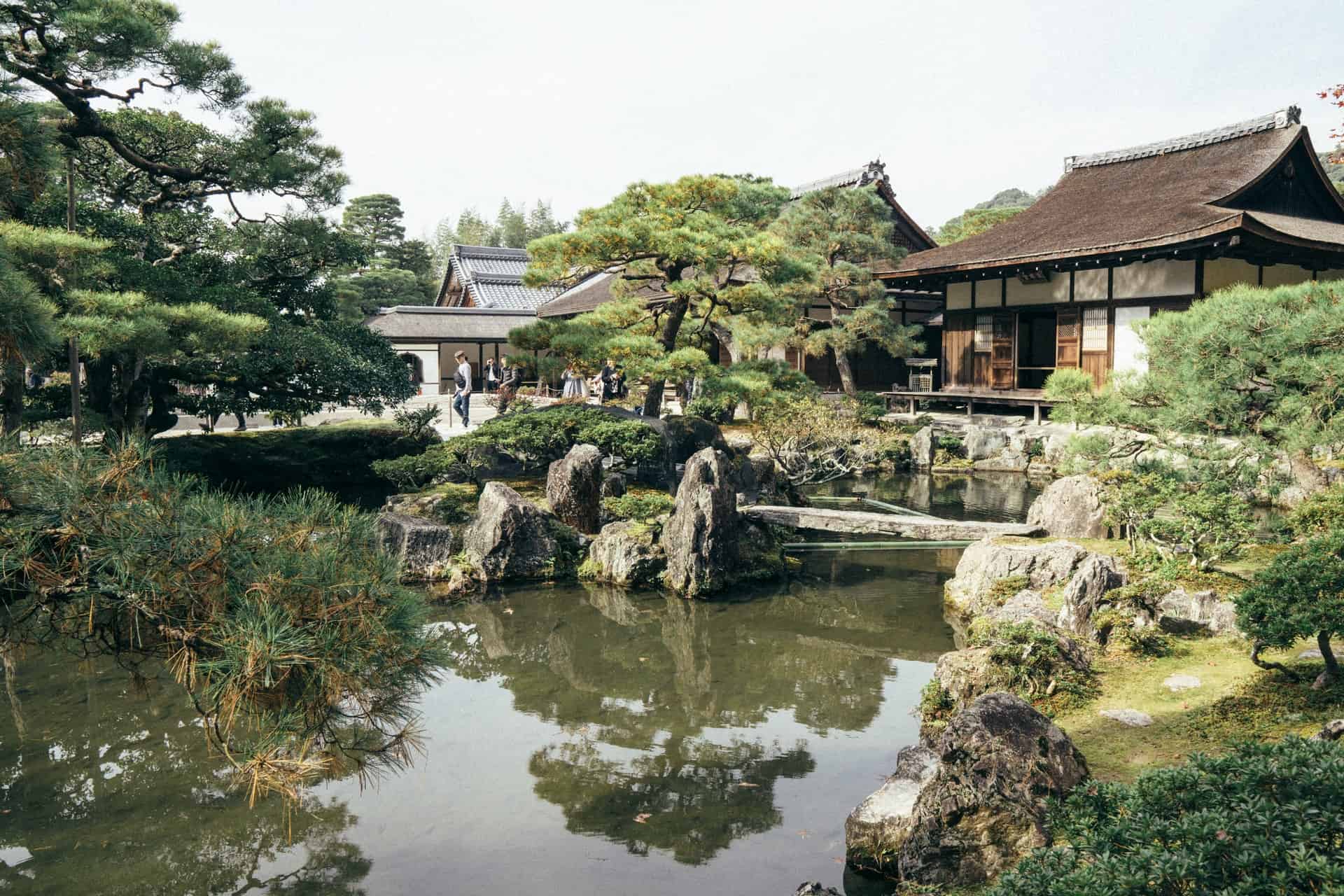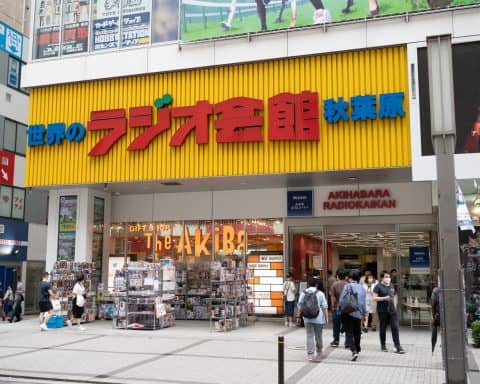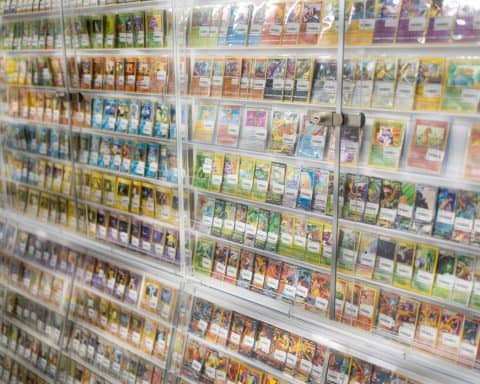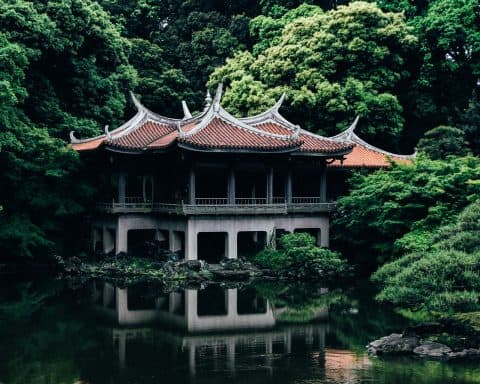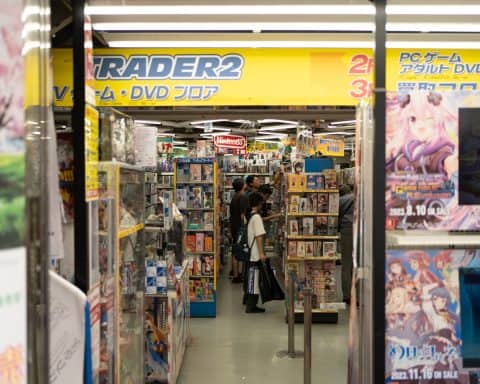One of my favorite things to do in Japan is walking around the beautiful gardens the country has to offer, and with well over 200 regularly open gardens, I’m sure to not run out anytime soon!
Not only are these gardens in Japan photogenic, but they’re also a great place to take some time and recharge.
But if you live in America, what options are there? Or do you honestly have to spend the money to fly to Japan?
As the majority of the visitors on this site are from America, I thought that it was a question I should answer!
Spoiler alert: You’ve got plenty of options to see Japanese gardens in America, though that’s no reason to not plan for your trip to Japan!)
Types of Japanese Gardens
Before we explore the best Japanese gardens in America, let’s learn a little bit about the types of traditional Japanese gardens.
Not all of them feature on the list, but hey, who needs an excuse to learn about Japanese culture!
Karesansui – 枯山水 – Dry Garden
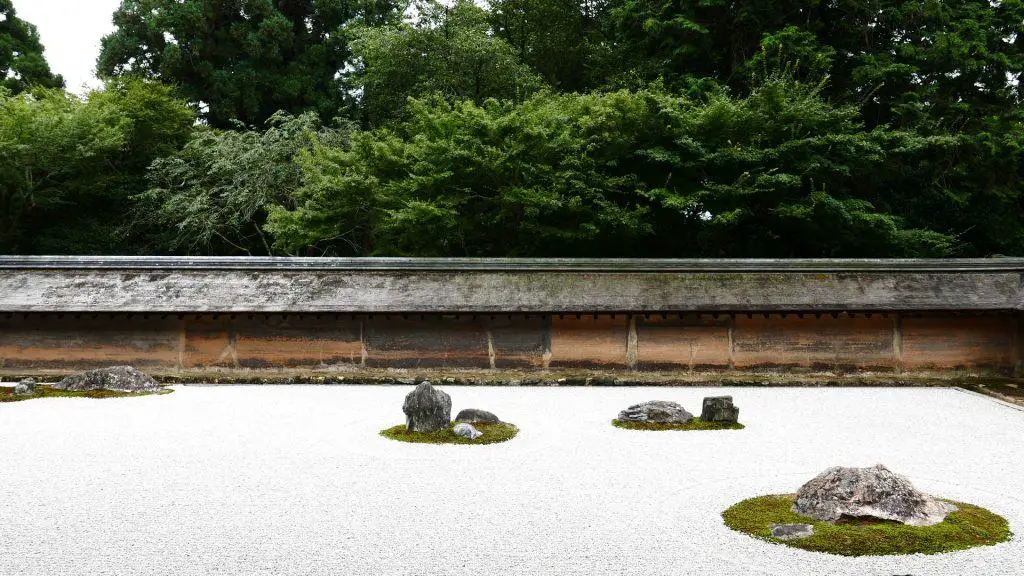
Commonly referred to as a ‘Zen’ garden, the Karesansui garden is a place where people, often monks, come to meditate and practice mindfulness. A great place to get some headspace, especially if you live in a busy part of the country.
Shoinzukuri-teien – 書院造庭園 – Study Garden
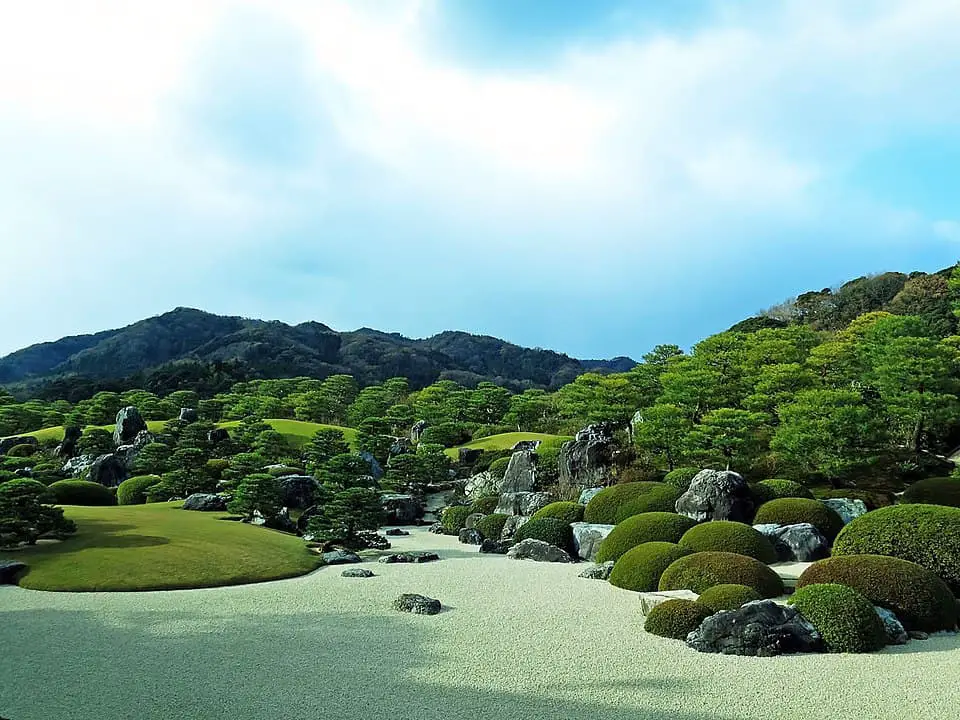
A Japanese study garden is almost the odd one out on the list. Though equally as beautiful as the rest of them, you don’t appreciate it in the same way as the others.
Your trip to a study garden will see you sat on a platform, or at a window, looking out onto a purposefully built landscape. Unfortunately, you won’t be able to walk around these gardens, but because they’ve been designed to look like a real-life painting, your visit won’t be any less zen than some of the others.
Chaniwa – 茶庭 – Tea Garden
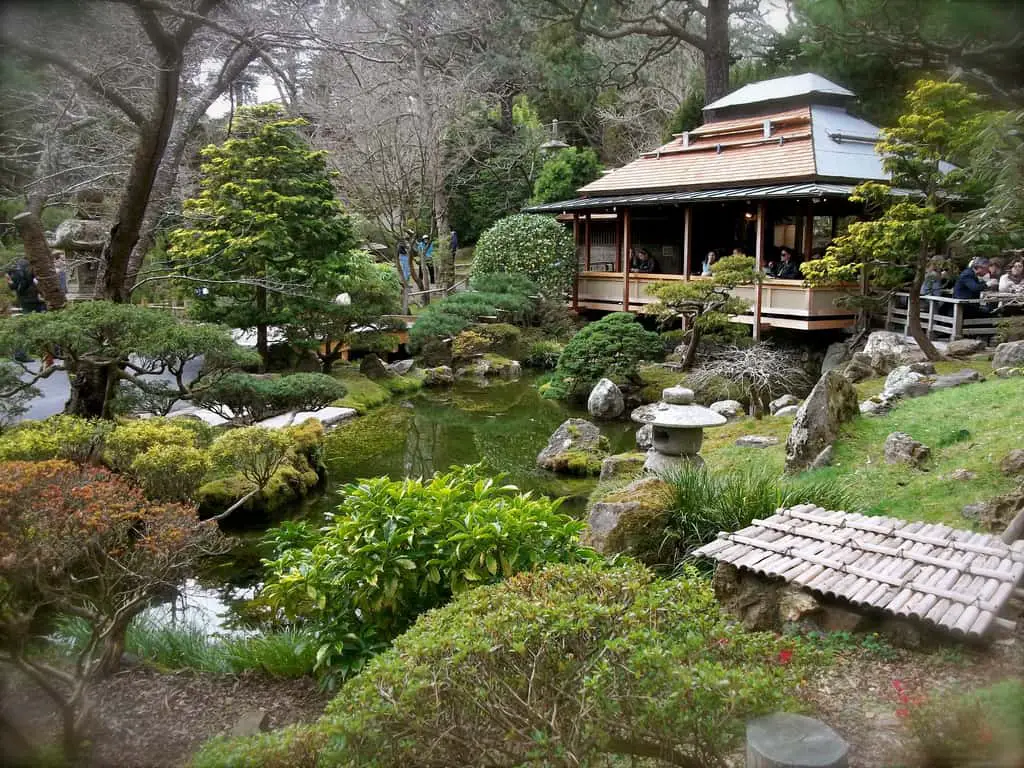
Tea gardens are designed, in some ways, as a way to cross the threshold before drinking your tea.
Visitors take a mindful stroll through the tea house gardens, preparing both their minds and body for the upcoming tea ceremony.
Kaiyushiki-teien – 廻遊式庭園 – Strolling Garden
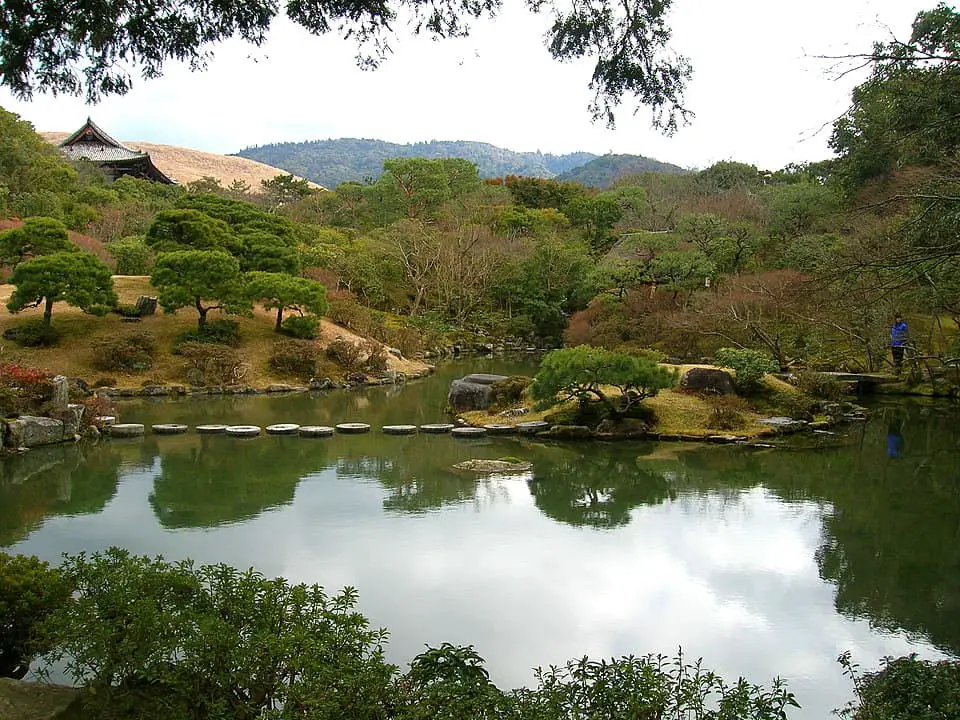
A similar situation to the tea gardens, Japanese strolling gardens are built for those who like to explore.
Often built on expansive land, the large garden will most traditionally be created around a large pond in the middle, with different scenes around each corner.
These are my favorite type of garden, and I definitely recommend you check them out if you fly to Japan, or if there’s one on this list near you.
As you’ll see, these are the type of Japanese gardens that are most popular in America due to their accessibility and explorable layout.
Tsuboniwa – 坪庭 – Courtyard Garden
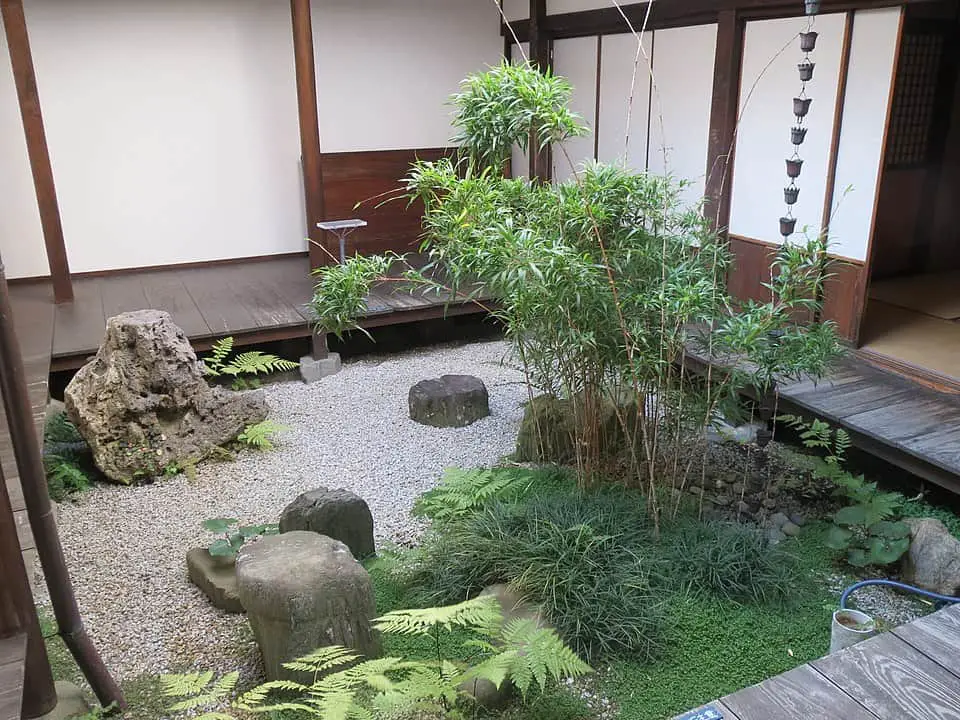
The last type of Japanese garden, and by far the one I dream of most, is the Tsuboniwa (courtyard garden).
As Japan has struggled for space during recent decades, they’ve also become masters at turning small areas into incredible courtyard gardens, among other things.
Though, even to have a garden as big as the photo above would be a dream in the city! Especiallywhen it’s relatively hard to find relaxing spots in Tokyo.
The Best Japanese Gardens in America
1. Seiwa-en
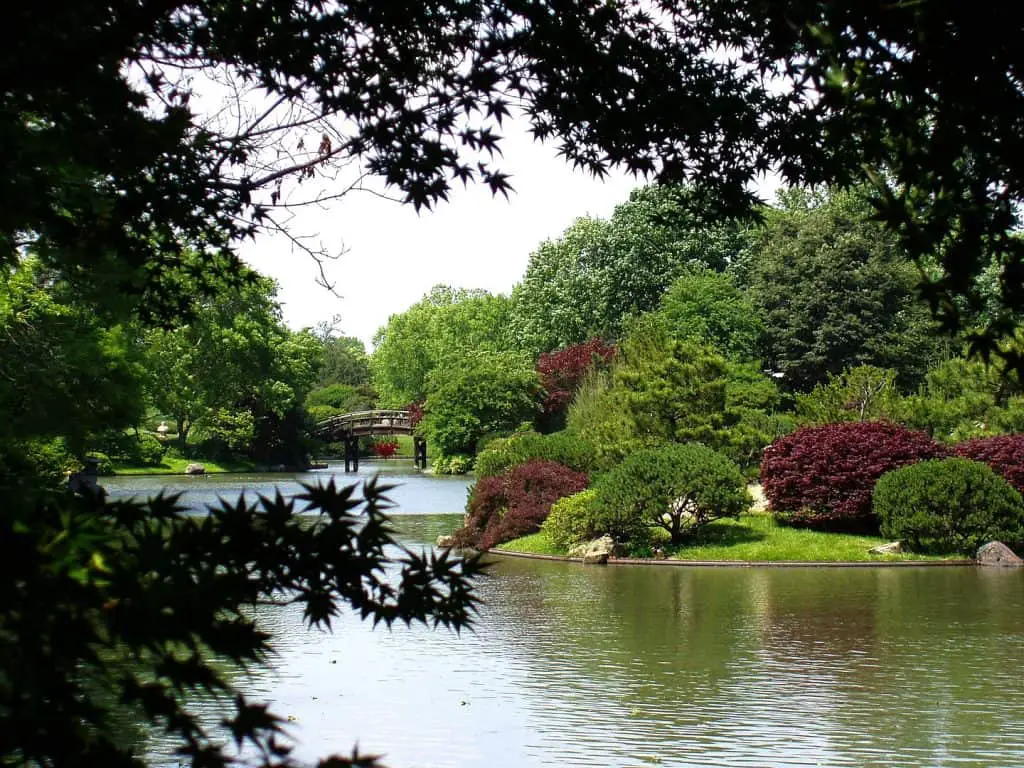
Type of Japanese Garden: Strolling Garden
Location: St Louis, Missouri
Admission: $14
Opening Times: Tuesday-Sunday | 9:00am – 5:00pm
Seiwa-en is a beautiful Japanese strolling garden in St Louis, Missouri. Built in 1977, it’s also one of the largest Japanese gardens in North America at 14 acres (That’s darn big!).
It includes a few bridges, traditional buildings, islands, and even koi carp.
Dr. Koichi Kawana, the designer of Seiwa-en, originally trained in Ikebana, Japanese flower arranging, which is likely evident throughout and may well have influenced a large portion of the garden.
However, perhaps the crown jewel of Siewa-en is its maple tree, a gift from the Emperor of Japan. So make sure you look for it during your trip!
2. Seattle Japanese Garden
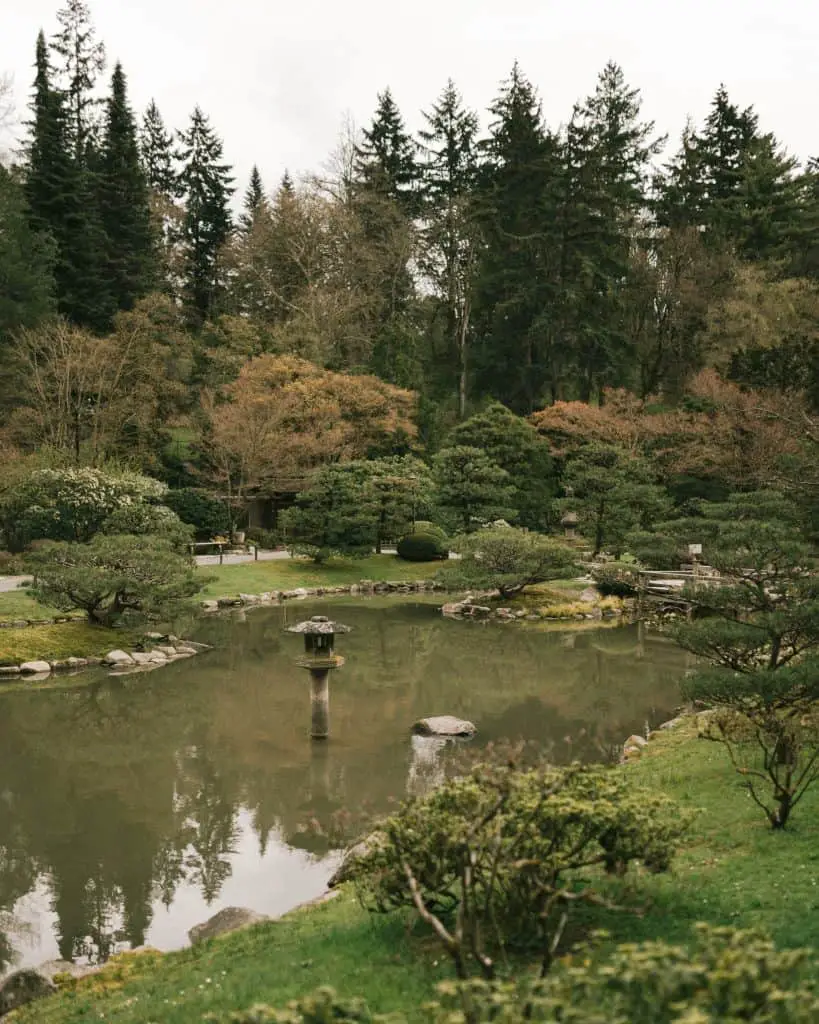
Type of Japanese Garden: Strolling Garden
Location: Seattle, Washington
Admission: $8 for Adults, $4 for children (6-17)
Opening Times: Tuesday – Sunday | 10:00am – 6pm (Depending on season)
With over 100,000 visitors per year, the Japanese garden in Seattle, Washington, is one of the most highly regarded and popular Japanese gardens in the whole of America. And for good reason, too!
Whilst it’s only 3.5 acres, each and every inch of this garden is packed full of Japanese plants and traditional features. Along your journey, be prepared to experience the various landscapes of Japan including mountains, rivers, waterfalls, and forests.
Take a slow meandering walk around the garden and forget your daily worries, if even just for a few hours. How pleasant!
Also if you come at the right time of year, you’ll be able to see the Japanese cherry blossom trees in full bloom at the arboretum.
3. Portland Japanese Garden
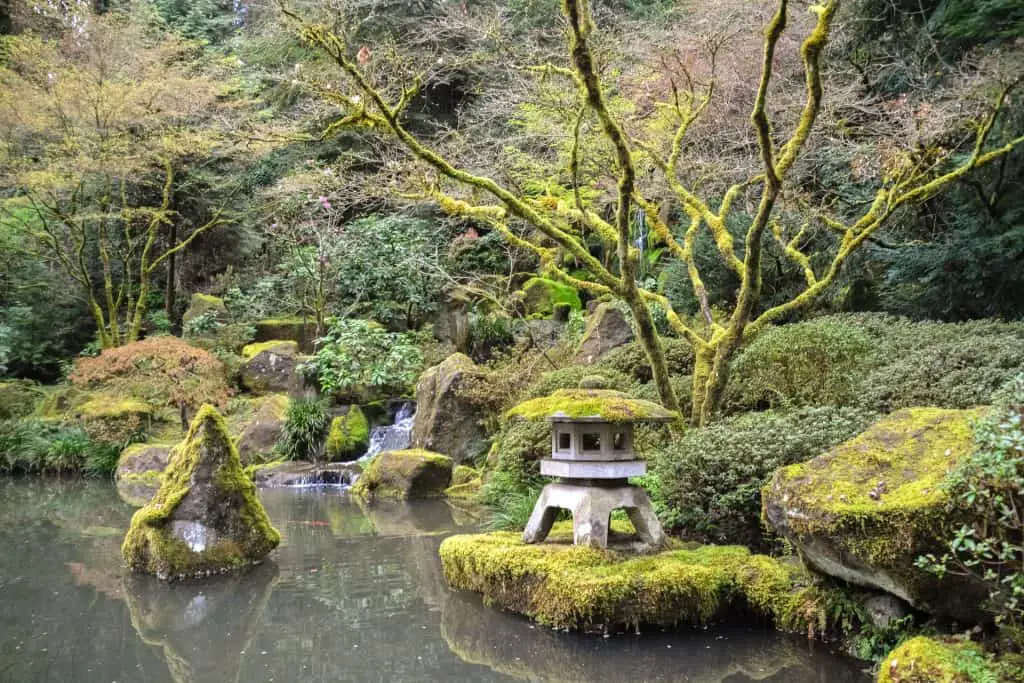
Type of Japanese Garden: Strolling, Natural, Dry, Tea, and Flat
Location: Washington Park, Portland
Admission: $18.95 for Adults, $13.50 for Children (6-17)
Opening Times: Wednesday – Monday | 10:00am – 5:30pm
To understand how special this garden is, you only have to know one thing. Nobuo Matsunaga, the former Ambassador of Japan to America said that the Portland Japanese Garden was “the most beautiful and authentic Japanese garden in the world outside of Japan.”
If that wasn’t enough to convince you to visit this exceptional slice of Japanese nature, there are actually 8 separate gardens across 12 acres. Probably the best way to escape to the mystical land of Japan without actually traveling there.
Plus it’s only a few minutes outside the city which means it’s the perfect Japanese day trip from Portland!
Forest bathing, anyone?!
4. Shofuso
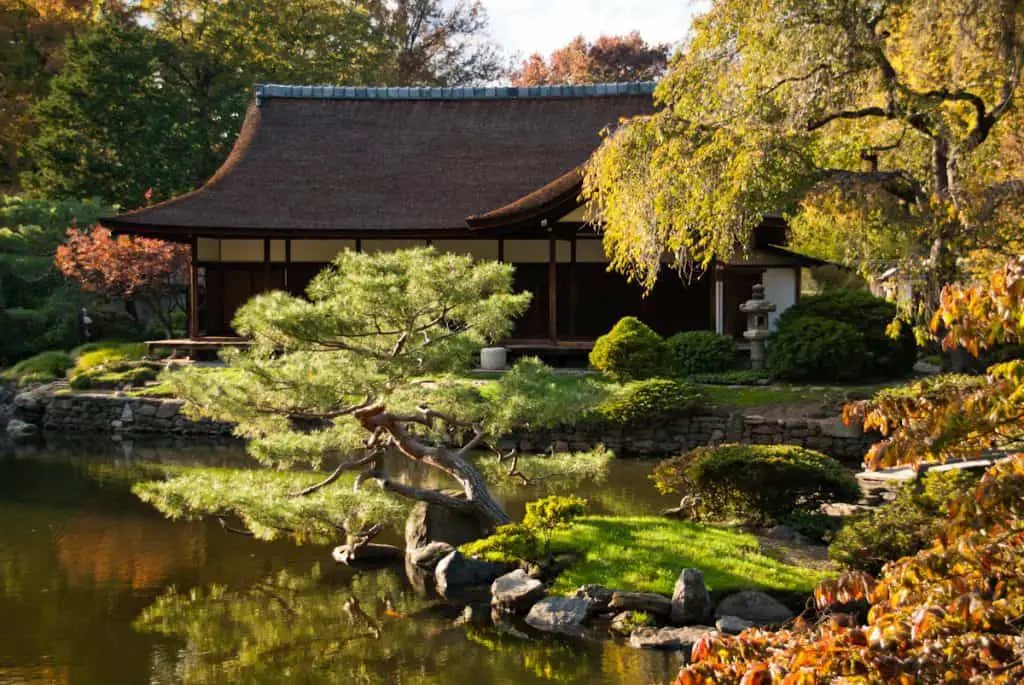
Type of Japanese Garden: Strolling Garden
Location: Philadelphia, Pennsylvania
Admission: $14 for Adults, $9 for Children (5-17)
Opening Times: Wednesday – Sunday | 11:00am – 5pm (Excluding November and December
Shofuso, which translates as ‘Pine Breeze Villa’ is a house designed by architect Junzo Yoshimura that was shipped over to the US in 1958.
Whilst the main attraction may well be the house, it’s surrounded by a tea garden, koi pond, waterfall, and other traditional Japanese garden features.
Some of the pictures I’ve seen of this place look absolutely fantastic, but I’m sure the only real way to view it is with your own eyes. So get down and have a look if you’re anywhere near!
5. Japanese Tea Garden, San Francisco
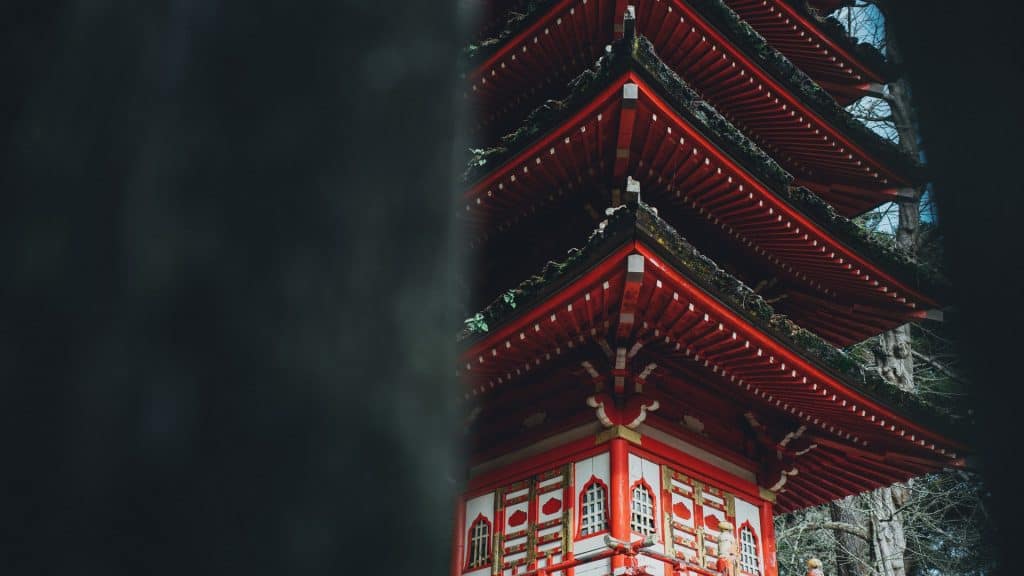
Type of Japanese Garden: Tea Garden
Location: San Francisco, California
Admission: $10 for Adults, $7 for Children (5-11)
Opening Times: Everyday | Summer 9:00am – 4:45pm, Winter 9am – 5:45pm
Smack bang in the middle of Golden Gate Park sits a stunning Japanese-style tea garden.
At only 5 acres, the garden isn’t nearly as big as some of the strolling gardens in California, yet it’s still packed full of exceptional design and beauty.
The extreme detail in this Japanese garden makes it stand out as one of my favorite out of all of them. Not that me saying that makes any difference to you, but it’s truly a work of art. Have a look at some of the pictures online and tell me you aren’t amazed!
As it’s a tea garden, there’s also a tea house where you can sample traditional Japanese tea and snacks. Pretty much the best part of any day!
6. Hayward Japanese Gardens
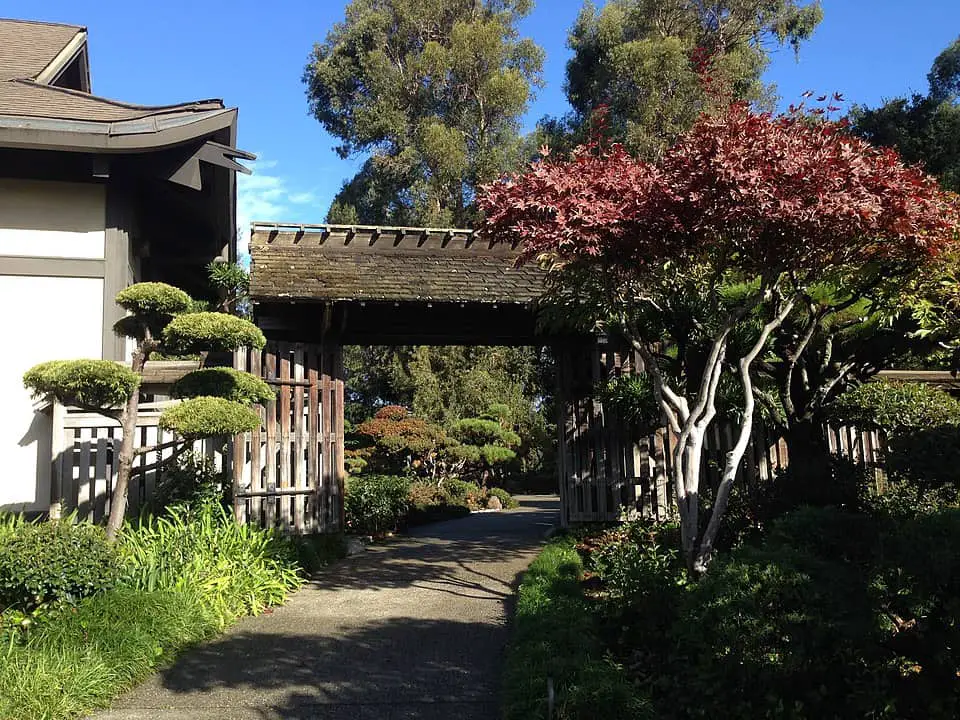
Type of Japanese Garden: Strolling
Location: Hayward, California
Admission: Free
Opening Times: Everyday | 8:30am – 4:00pm (Excluding Christmas Day)
At only 2.5 acres, this Japanese garden in California is definitely one of the smallest, but that really doesn’t impact its beauty.
It’s the very first Japanese garden to be developed entirely in the United States, making it worth a visit for that reason alone.
But if that hasn’t convinced you (not everyone is as geeky about Japan and gardening as I am), then you only have to look at its beautiful Japanese trees and traditional wooden buildings to see just how spectacular this garden is.
Plus, it’s just a quick drive away from the tea garden next to the golden gate bridge. Two for the price of one, kind of!
7. Hakone Gardens
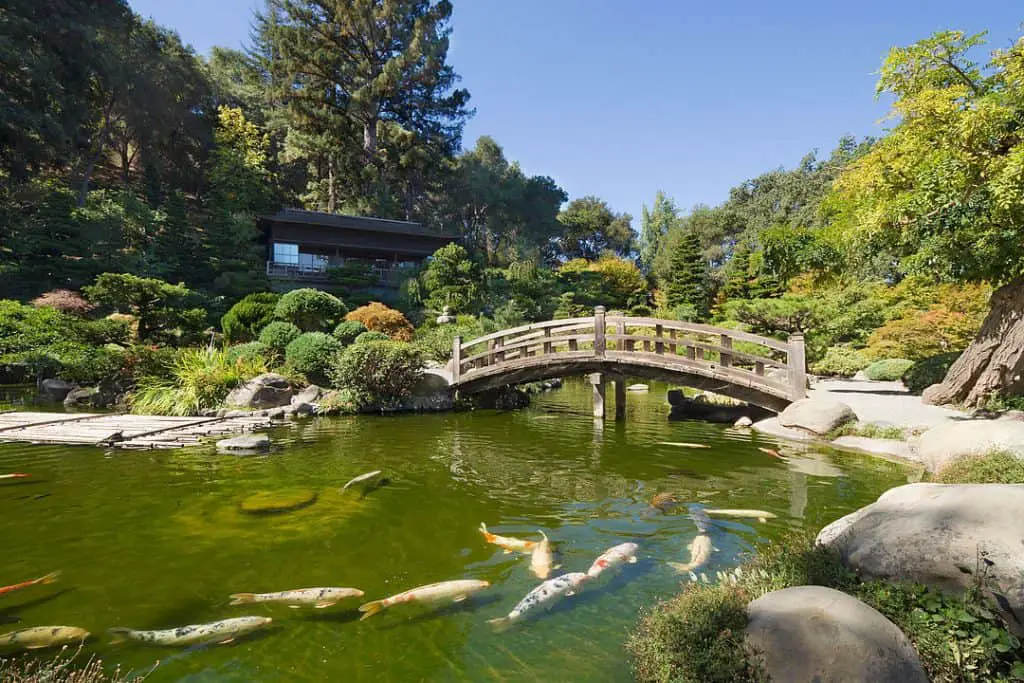
Type of Japanese Garden: Zen, Strolling, Tea
Location: Saratoga, California
Admission: $10 for Adults, $8 for Children
Opening Times: Weekdays | 10:00am to 5:00pm
I’ve been to Hakone a number of times and it’s truly the epitome of Japanese zen. Ryokan sat snuggly between misty mountains, bamboo forests, and Japanese wildlife.
To attempt to combine all of that into a garden is an extremely tough ordeal.
But the folks over at Hakone Gardens in Saratoga, California, have done their best. And their best is damn good.
This is probably what I would call the best Japanese garden in California, and I don’t say that lightly.
By taking a look at the Hakone Garden map, you can see the area is split up into many different areas including Waterfalls, Bridges, Tea Gardens, Bamboo gardens, and others.
Of course, nothing is truly the same as visiting Hakone for yourself, but this Japanese garden in America presents itself as more of an experience than simply another garden.
Completely worth a visit even if Japanese gardens aren’t really your thing (why aren’t they?!)
8. Morikami Musem and Japanese Gardens – Roji-En
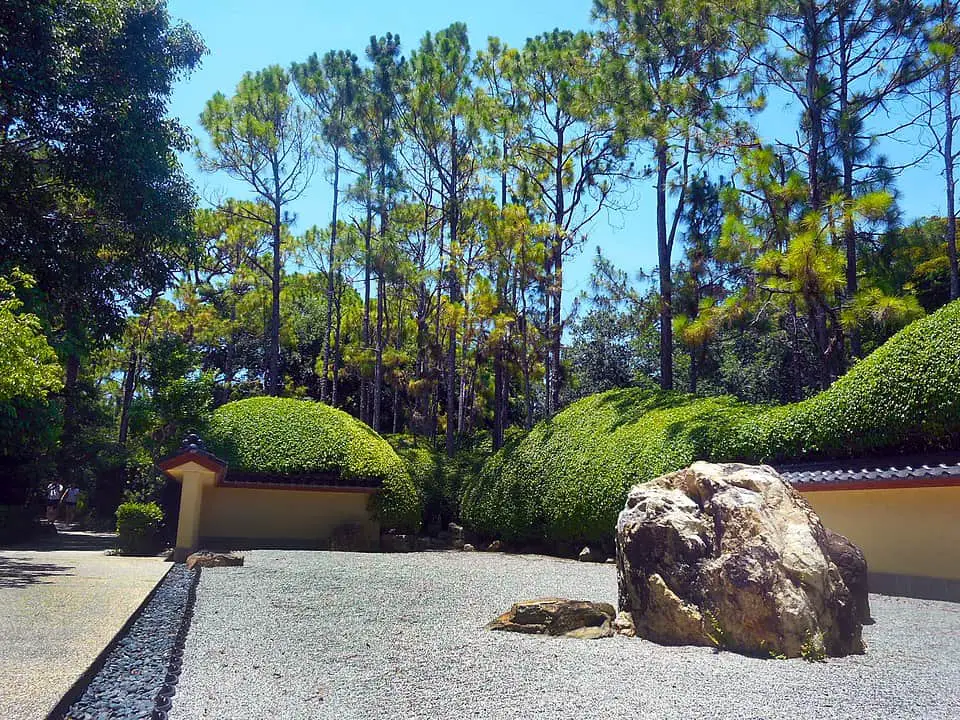
Type of Japanese Garden: Stroll, Shinden, Paradise, Dry, Hiraniwa, Modern Romantic
Location: Palm Beach Country, Florida
Admission: $15 for Adults, $9 for Children (6-7)
Opening Times: Weekdays | 9am – 5pm
In Palm Beach, Florida sits the Morikami Museum. Though only classed as an extension to the museum, the Roji-En Japanese garden sits inside.
When I heard it was only designed to be an extension to the museum, I expected very little, perhaps an inspired afterthought at most. How wrong I was!
With a total of 6 gardens, the Roji-En Japanese garden in Florida is a stunning display of design and honor to Japan’s traditional gardening culture.
There are pine forests, Bamboo groves, waterfalls, dry gardens, paradise gardens, the list is huge.
And at over 16 acres, so is the garden.
9. Byodo-In Temple
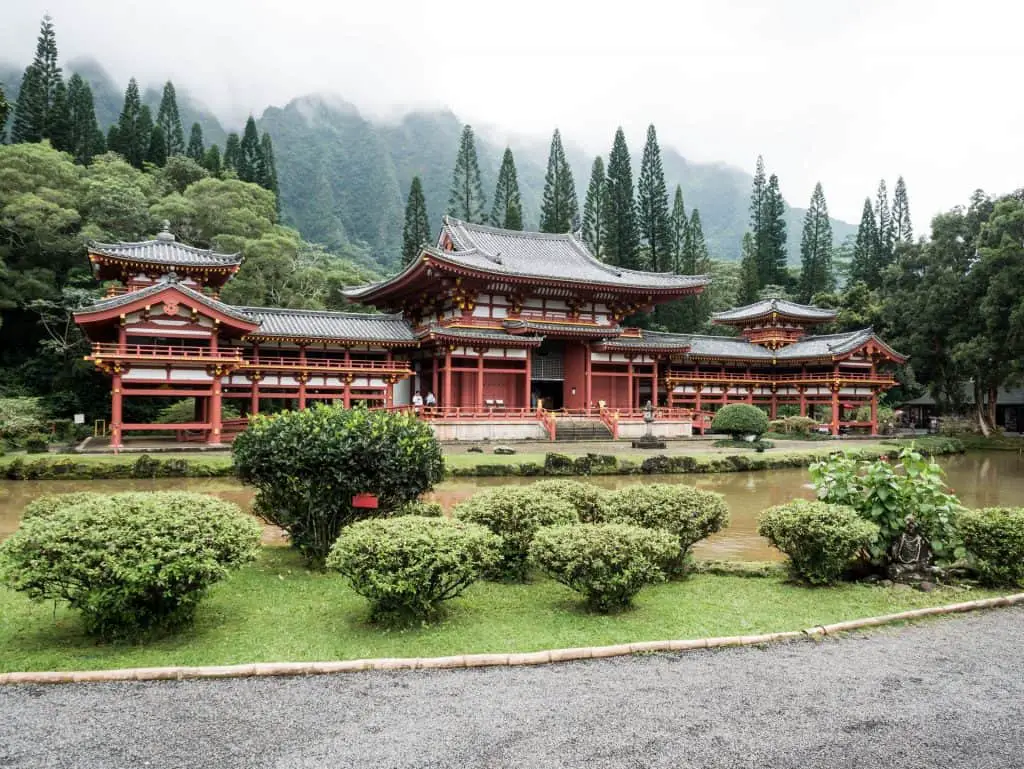
Type of Japanese Garden: Temple
Location: Kahaluu, O’ahu, Hawaii
Admission: $5 for Adults, $3 for Children (Under 12)
Opening Times: 8:30am – 5:00pm daily
Last, but by no means least, is the Byodo-In Temple in Hawaii.
Yep, I said temple and not Japanese garden. Because although this site is primarily considered a temple attraction, there are some beautiful gardens and surroundings as well.
Visitors can expect to see a huge koi pond in front of the temple, as well as a reflecting pond, waterfalls, and wild peacocks.
Of course, peacocks not being an entirely authentic addition to the temple, but still pretty damn cool!
It’s an absolutely stunning piece of Japanese architecture, and wouldn’t be out of place in the foothills of Mount Fuji, let alone Hawaii!
じゃまたね^_^



